A Power of Attorney in Washington allows a principal to choose a representative or agent to act on their behalf and make decisions regarding particular situations.
The principal should choose the type of form they need before filling it out and granting the agent the chosen powers. In the case of a durable POA in Washington State, the agent will still have the authority you granted them even when you become incapacitated.
You can use it to grant the agent legal authority concerning financial, business, tax filing, and medical decisions. Ensure that as you prepare it in Washington State, you keep in mind the state laws you are required to observe. Also, always choose an agent or representative you trust for it.
How to Get Power of Attorney in Washington?
To get it in Washington State, ensure that you, as the principal and the agent fill out and sign the form. As you fill out and sign the form, always keep in mind the requirements and laws of Washington State regarding it. If you wish to make it durable, ensure that you specify this in your form and use the required language to make it durable.
In Washington State, a POA is never presumed to be durable unless it meets the set requirements. If it is not durable, remember that it will become void once you become incapacitated, mentally incompetent, or have a disability.
Here are a few free forms to help you:
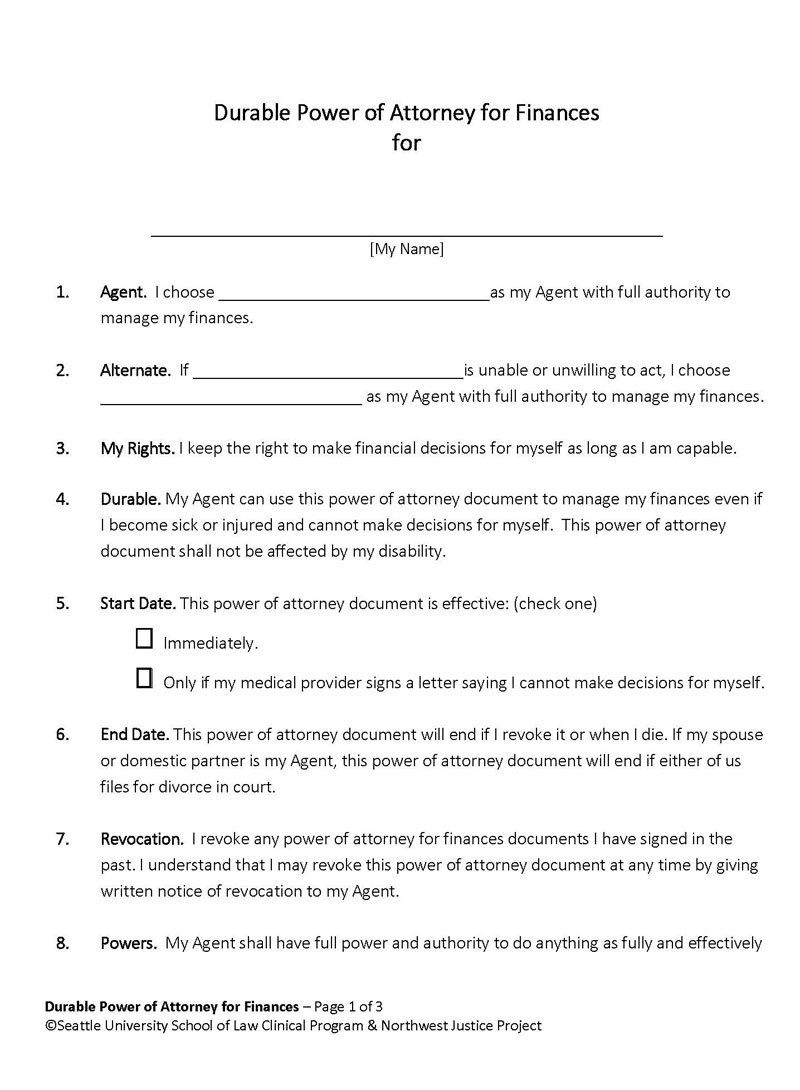
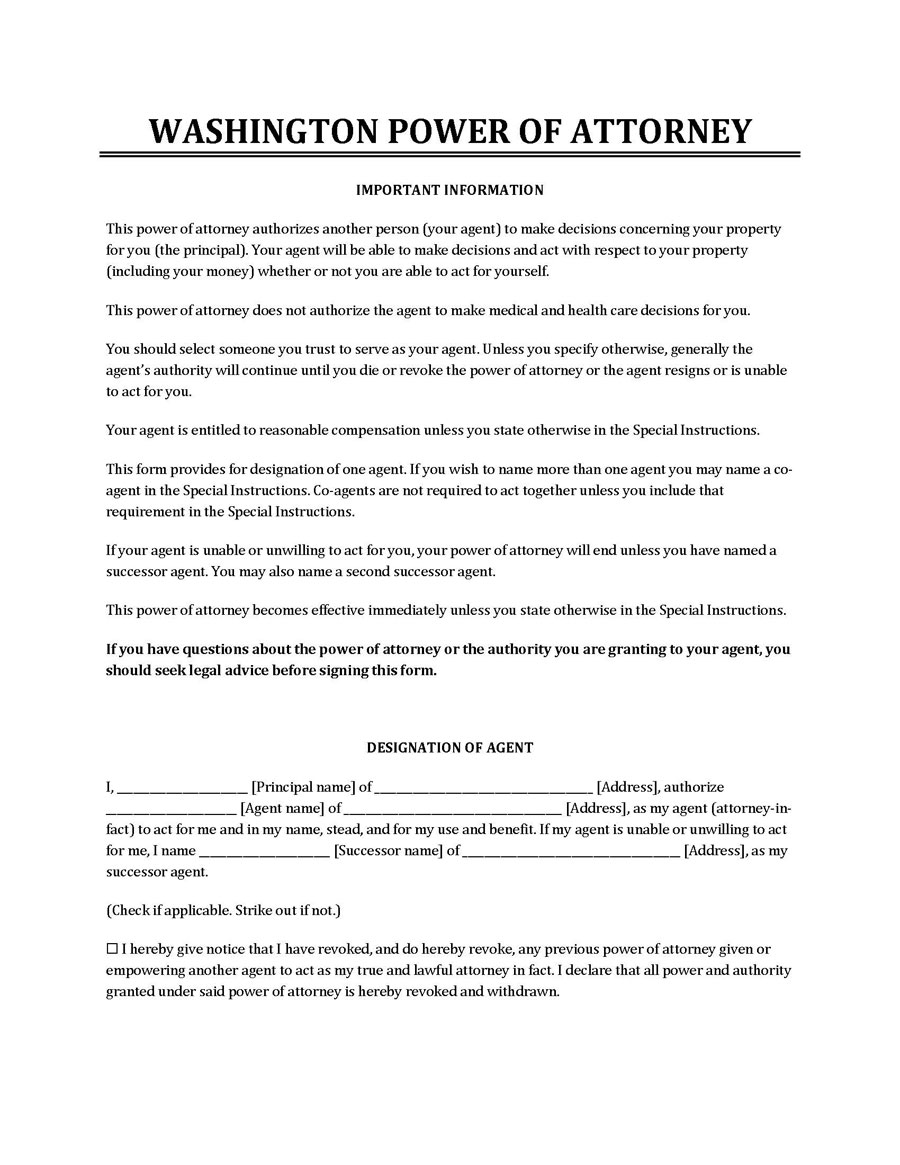
Scope and Effective Date of POA in Washington
The scope of a power of attorney in Washington can be minimal or expansive. You can choose an agent and grant them one type of authority or various powers over your affairs. You can also choose different agents for different tasks in that each agent is responsible for certain decisions. For example, as a principal, you can prepare it to allow the agent to make decisions for your minor children.
In most cases, principals prepare it to have someone to represent them when they are physically or mentally incapacitated. This is when such types of power of attorney become effective. In other cases, a principal may prepare it that takes effect immediately it is signed, and the agent has a copy. As a principal, you must mention when you wish for it to become effective and when it will end.
Types of Power of Attorney
There are different types in Washington State you can use depending on your needs and requirement as shown below:
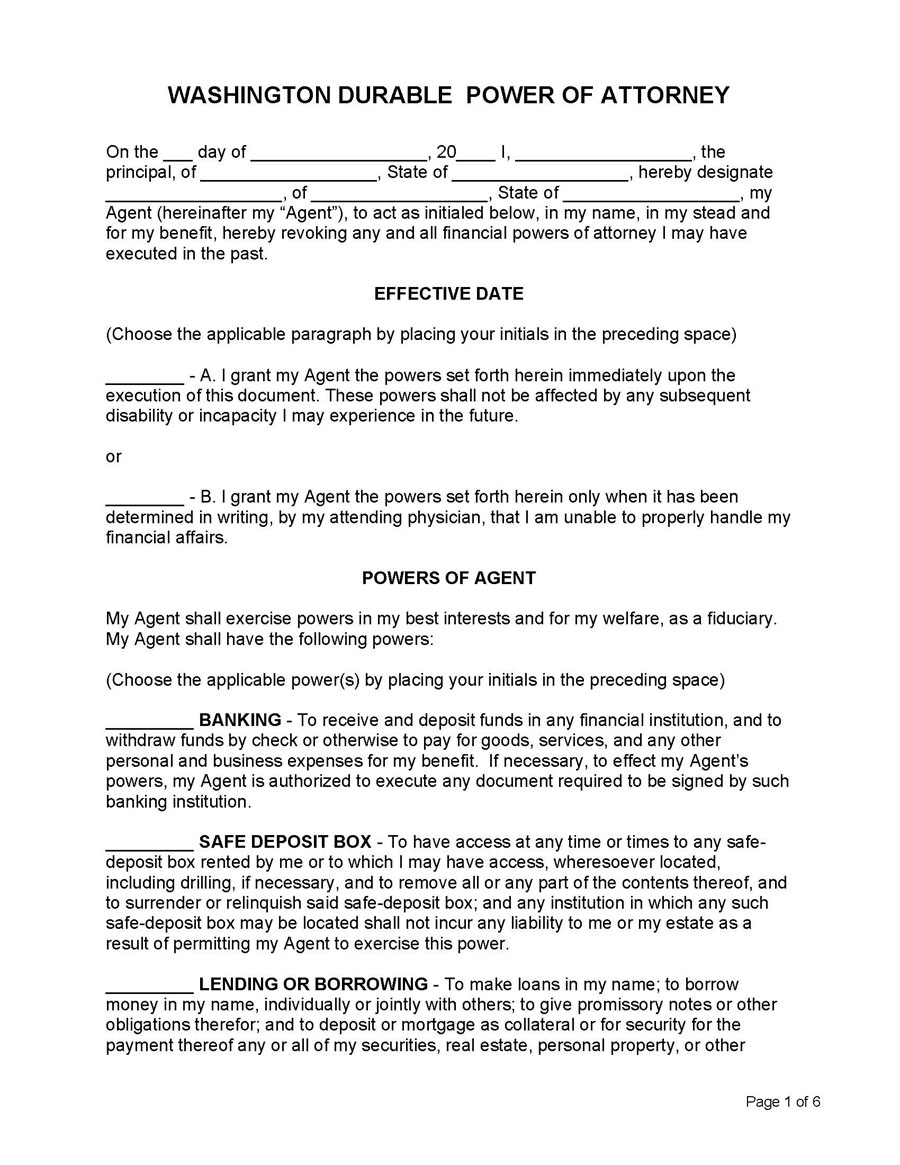
Durable (Financial) Power of Attorney Form
Download: Microsoft Word (.docx)
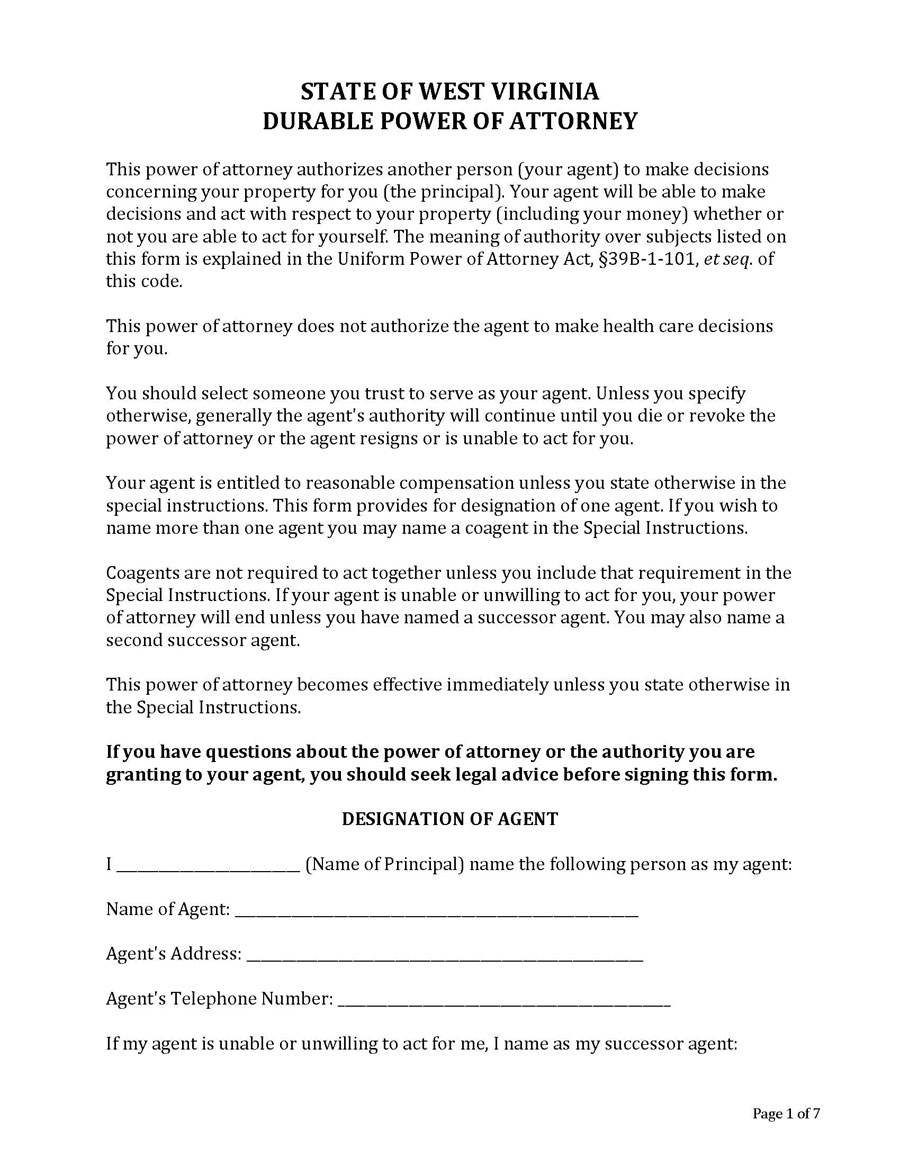
Durable (Health Care) Power of Attorney Form
Download: Microsoft Word (.docx)
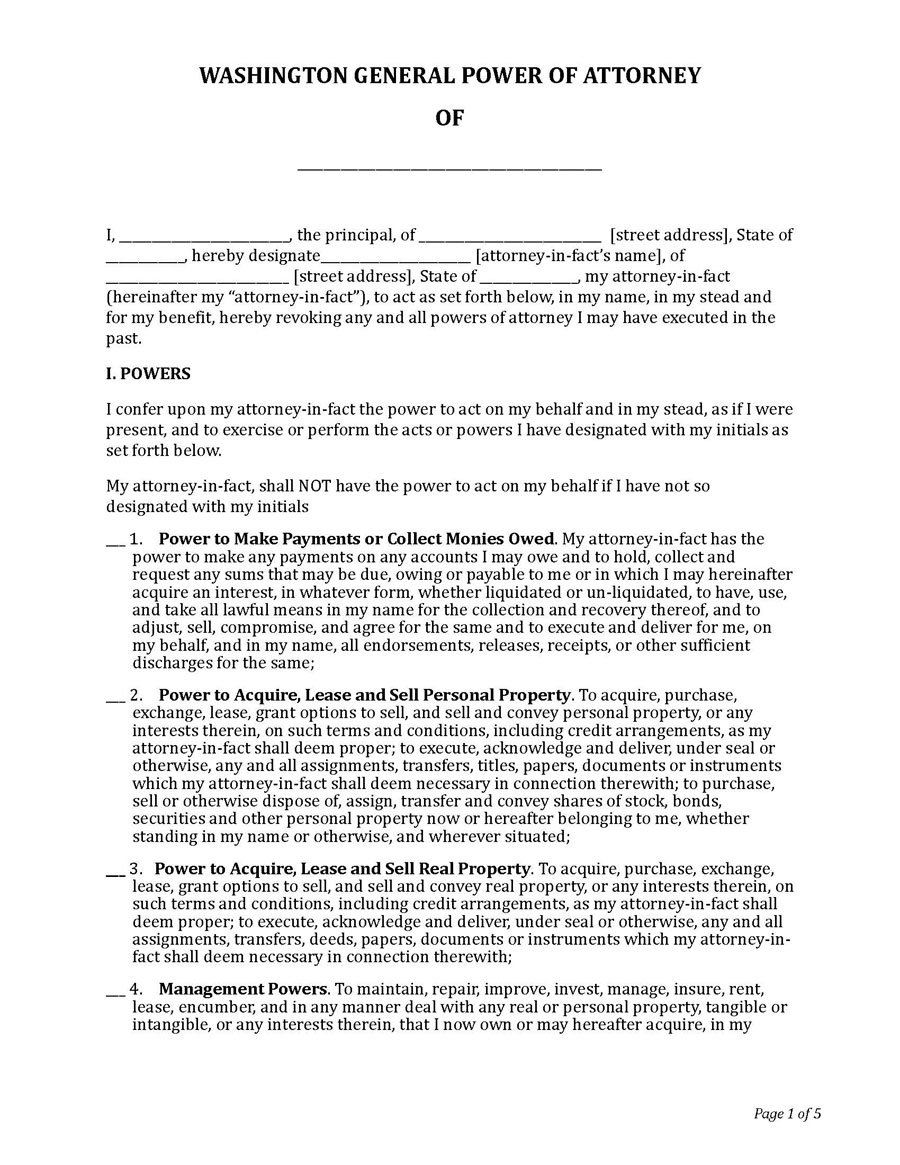
General (Financial) Power of Attorney Form
Download: Microsoft Word (.docx)
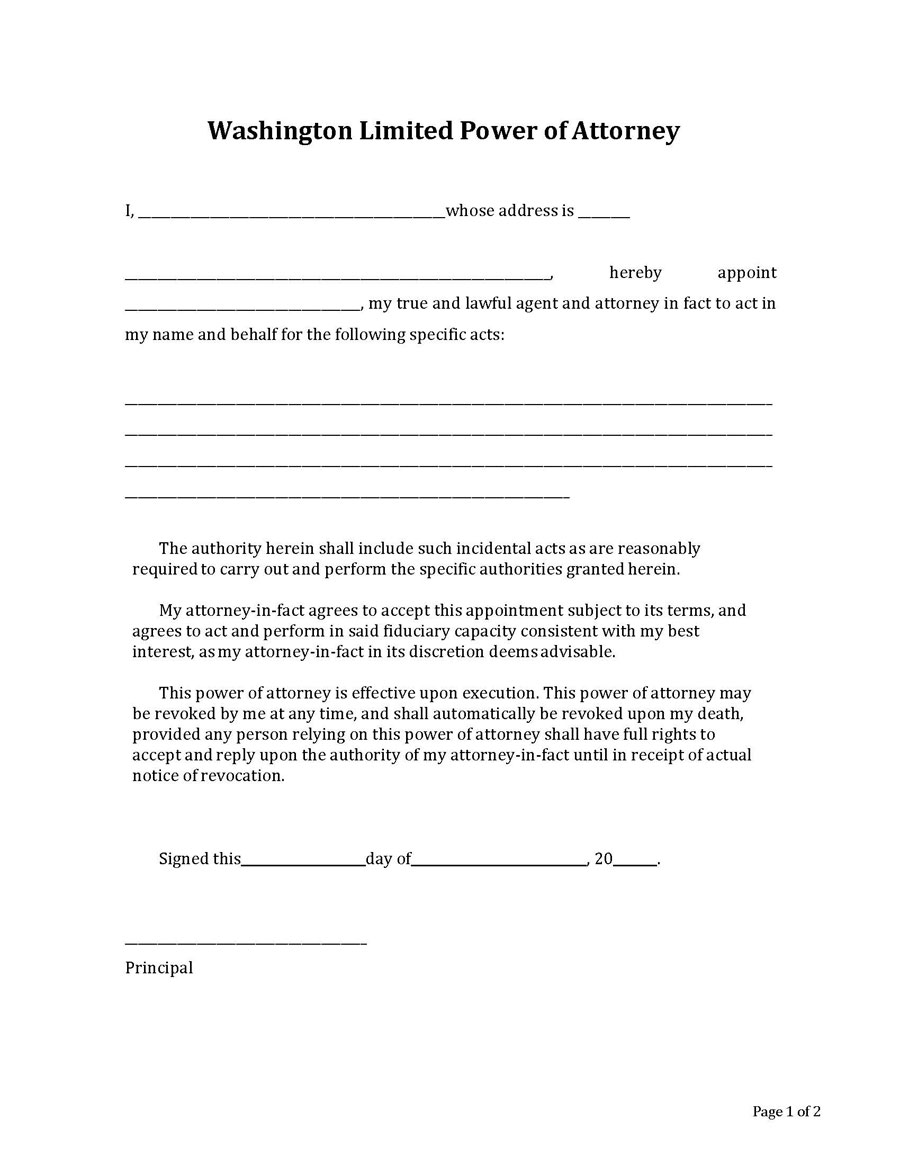
Limited Power of Attorney Form
Download: Microsoft Word (.docx)
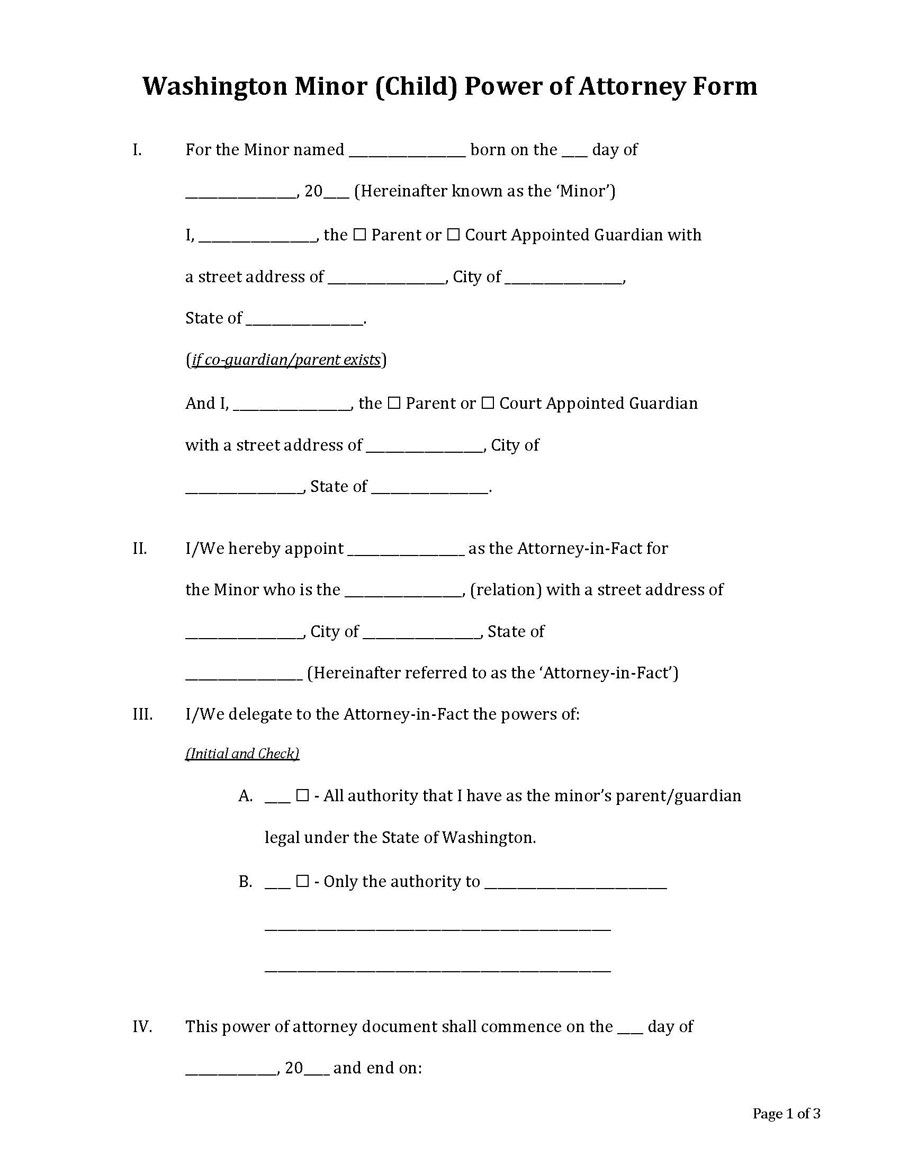
Minor (Child) Power of Attorney Form
Download: Microsoft Word (.docx)
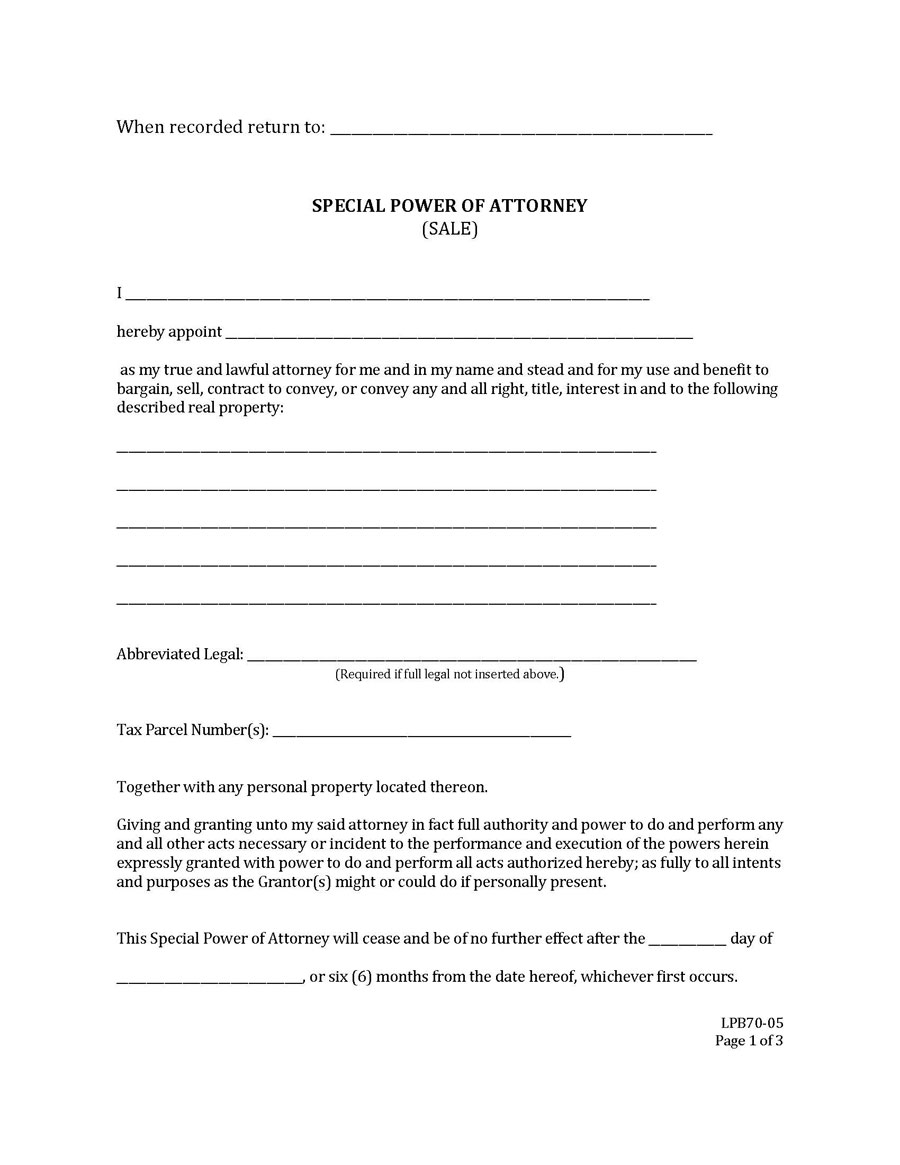
Real Estate Power of Attorney Form
Download: Microsoft Word (.docx)
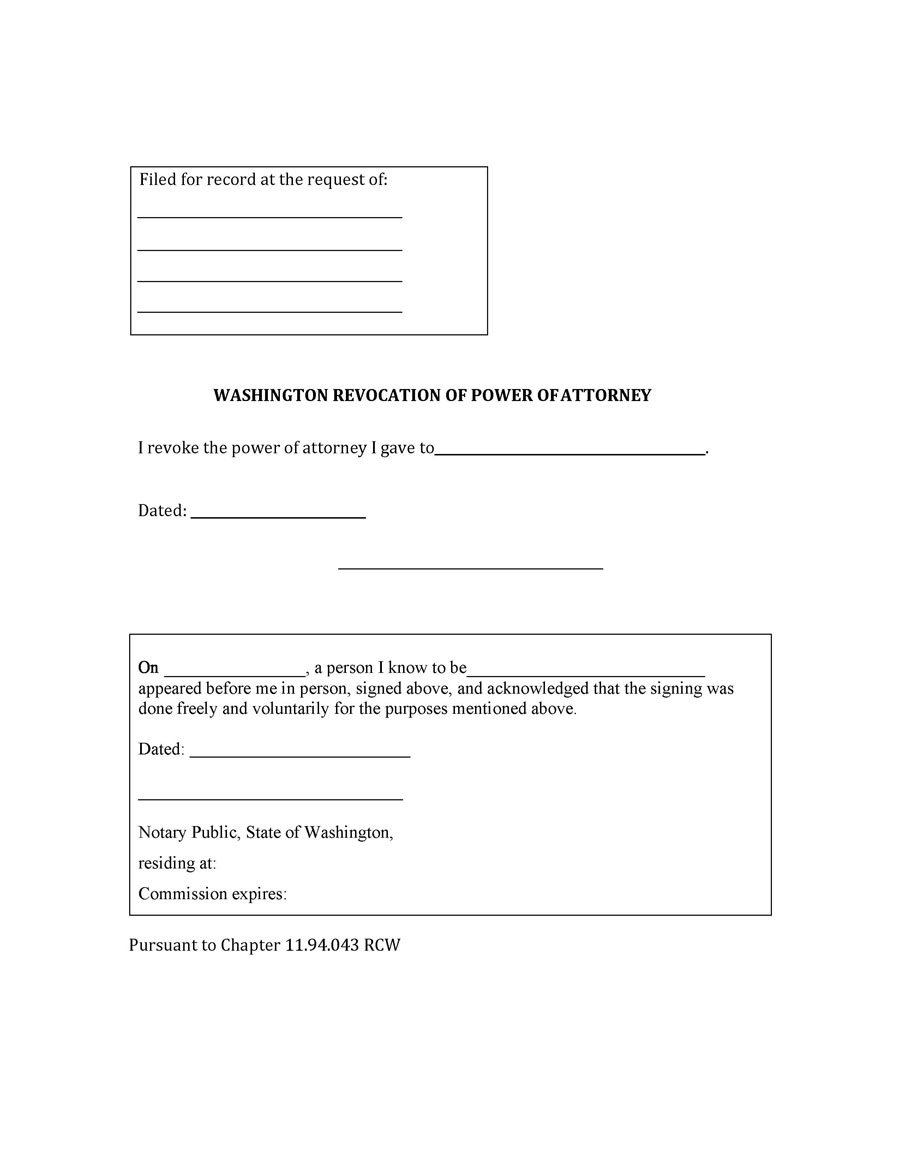
Revocation of Power of Attorney Form
Download: Microsoft Word (.docx)
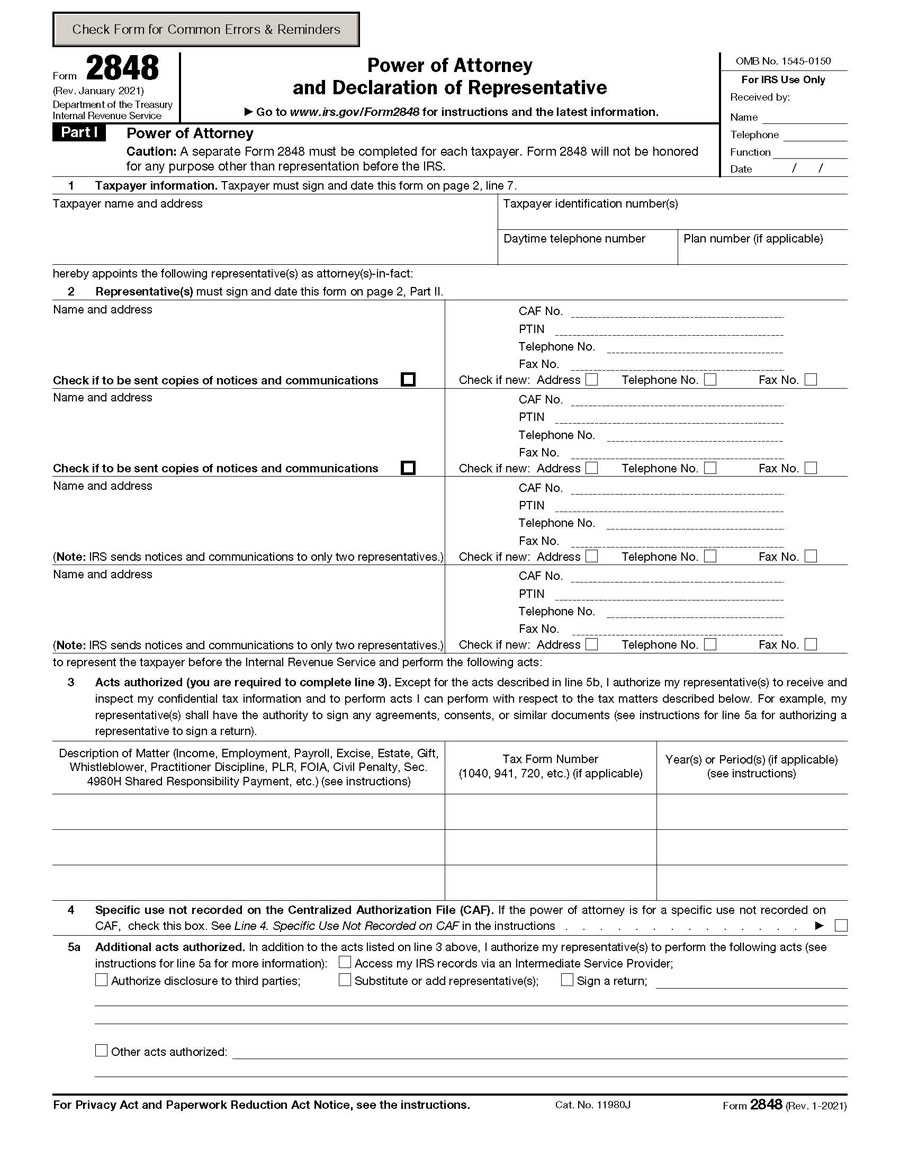
Tax Power of Attorney Form
Download: Microsoft Word (.docx)
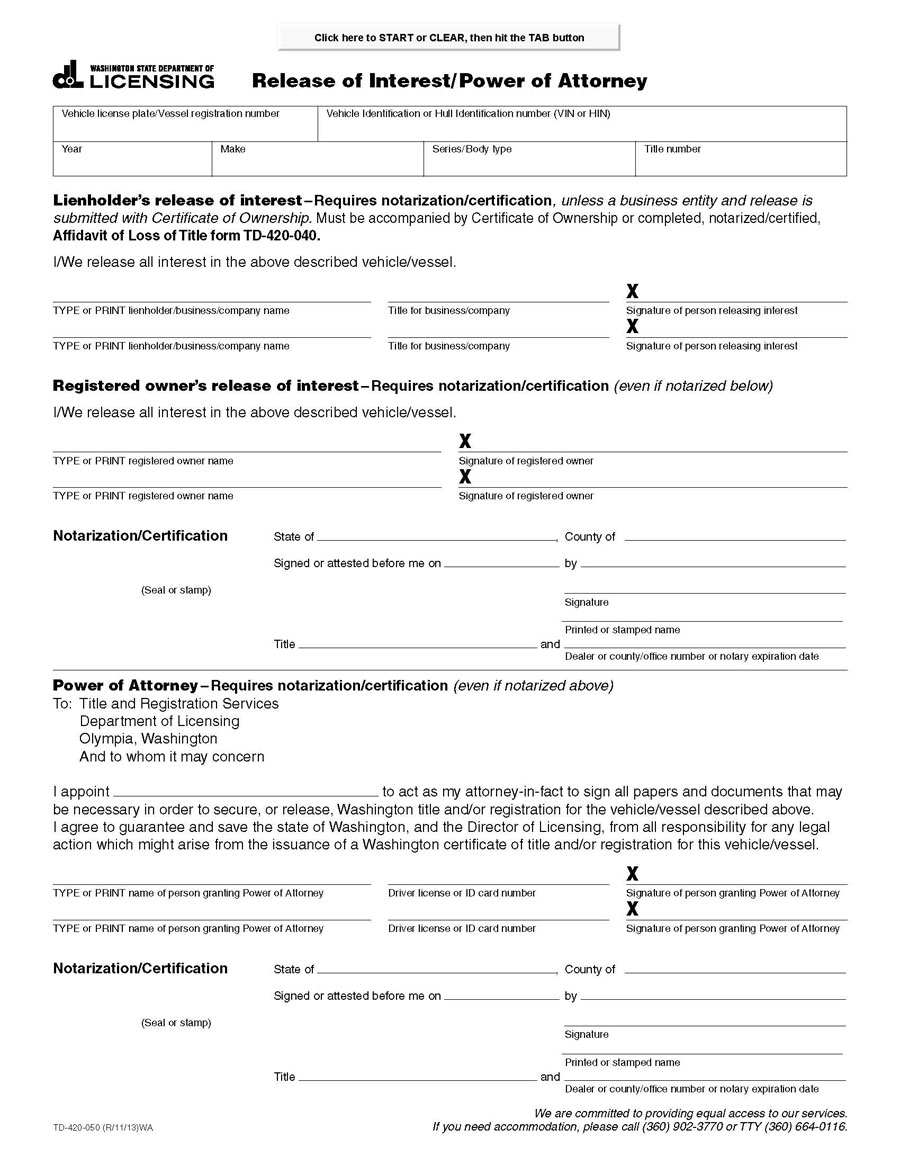
Vehicle Power of Attorney Form
Download: Microsoft Word (.docx)
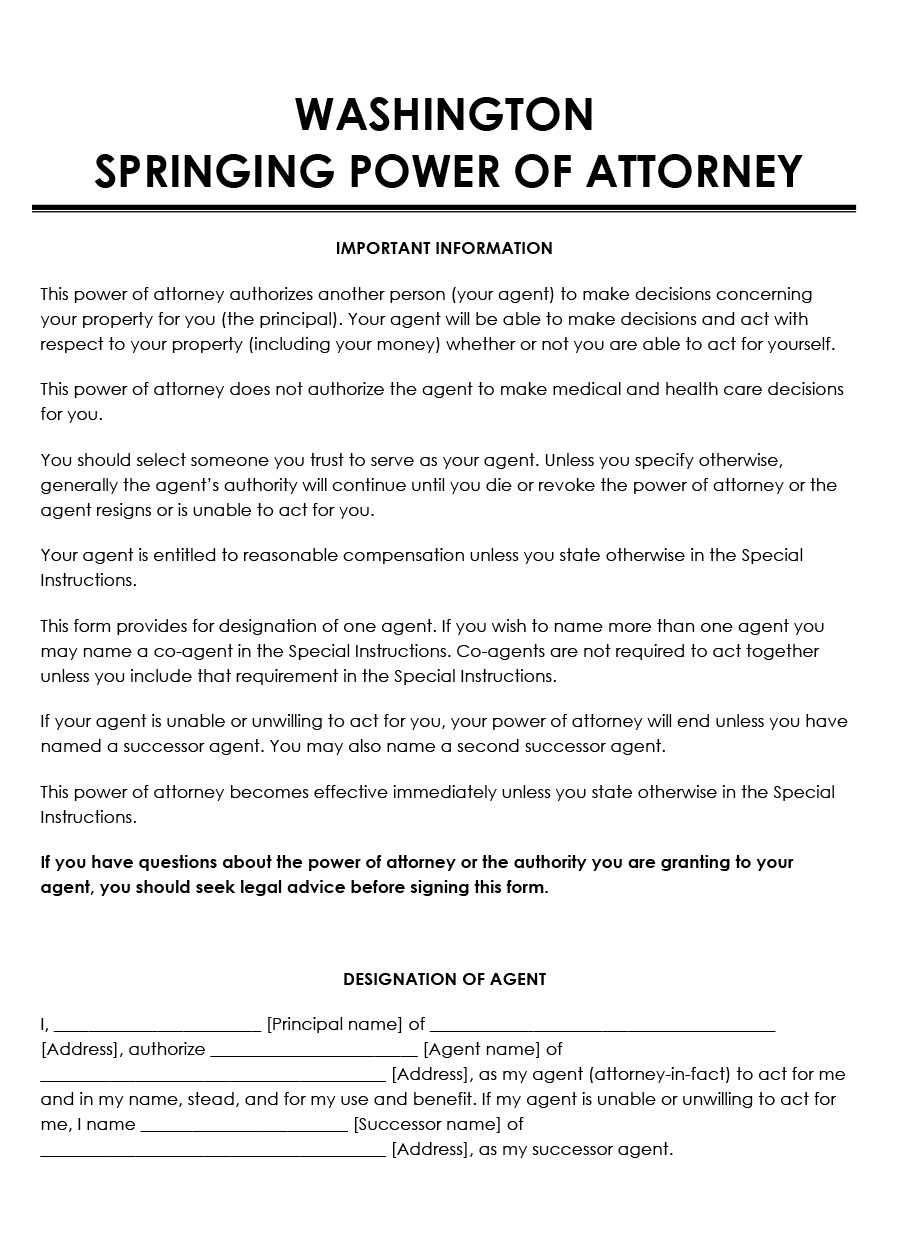
Springing Power of Attorney Form
Download: Microsoft Word (.docx)
Governing Laws
There are specific governing laws put in place by the State of Washington that must be observed by both the principal and agent when preparing it. Those laws include:
- For specific powers like life-prolonging acts, the agent can make medical and health care decisions or give out permission on behalf of the principal.
- In Washington State, the legal requirements for durable POA should be in writing. The principal must use specific language that highlights that the agent’s powers remain in effect even if the principal becomes incapacitated.
- The revocation of durable POA only happens if the principal or the court revokes it after the principal becomes incapacitated.
- There are no specifications in the laws of Washington State when it comes to questions about whether these forms are valid from State-to-State and what happens if a physician is unwilling to follow the durable POA.
- There is immunity for an attending physician acting in good faith and with no negligence. The laws state that such a physician will not be held liable.
Washington Power of Attorney Requirements
It would be best to keep in mind the following points when preparing different Washington forms as mentioned in the Washington Uniform Power of Attorney Act.
These requirements are:
First, you must include your name as the principal and the name of the chosen agent(s). Then, ensure that as the principal, you specify the powers you are granting to your agent alongside the limitations on their powers.
Also, include the date when the agent’s powers become effective and the end date. Always remember to include the execution date of the form. This is the date when the signing happens, enabling you and the agent to enter into a contract or agreement. When including your signature and the agent’s signature, ensure that this is done before a notary public.
Revoking of Power of Attorney in Washington
The principal can revoke it in Washington State. In addition, you can choose to revoke it if you no longer trust your agent(s), if you no longer need the agent’s assistance or if you want to remove the agent. To revoke it, you will need to prepare the revocation of attorney form, fill it out, sign it before the notary public or a witness, and inform the agent that the POA is no longer adequate by giving them a copy of this document.
If you set rules on how to revoke it in your existing POA form, ensure you follow those rules to make the revocation valid. For a durable POA, once you become incapacitated, only a court order can revoke that authority since you will not be in a position to do it by yourself.
Key Takeaways
- In Washington State, a principal can prepare a POA to select an agent to make decisions and act on your behalf in different matters.
- There are different POA forms you can use depending on your needs or requirements.
- Ensure that you observe the requirements and laws of Washington State when preparing it.
- Keep in mind that you can revoke it whenever you choose, depending on the reasons you might have.
- Also, it can stop being effective and become void if you as the principal become incapacitated or incompetent unless it is a durable power of attorney as it will remain valid.












